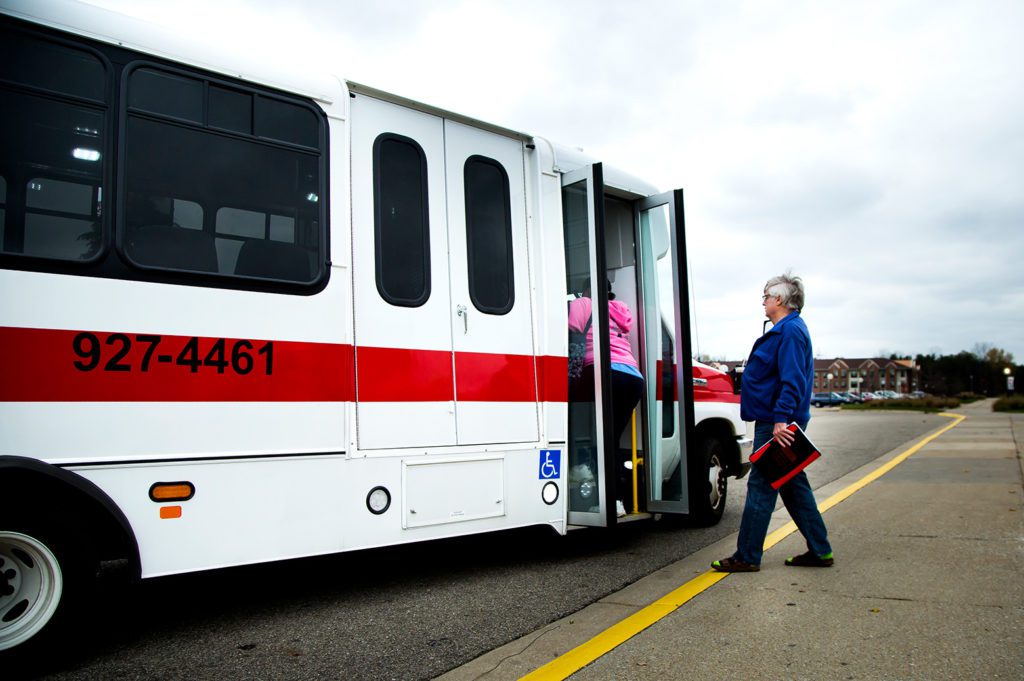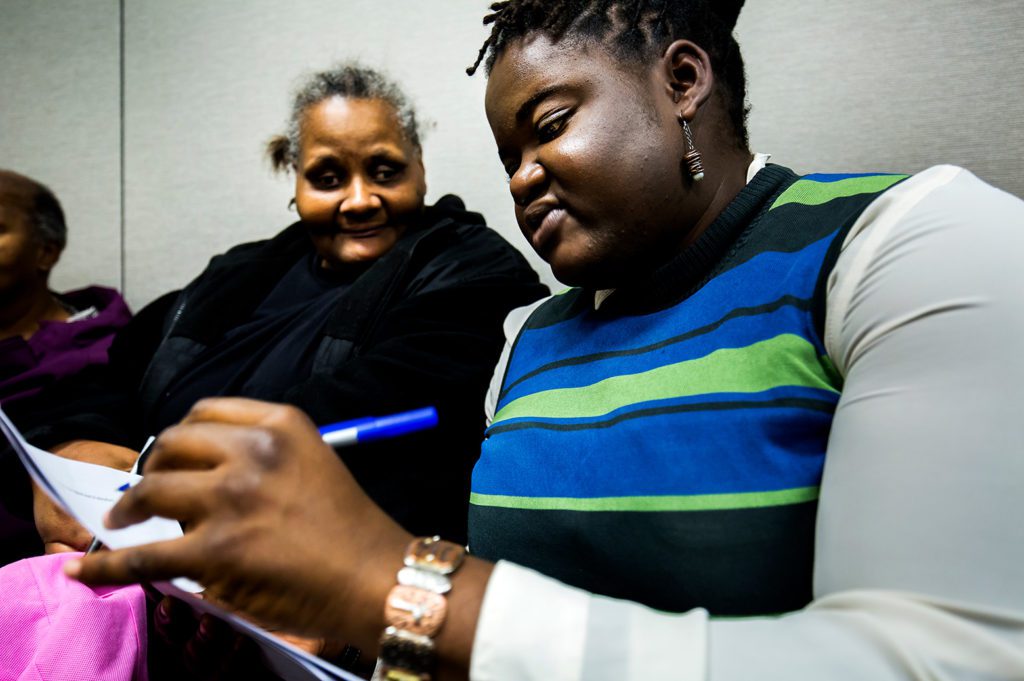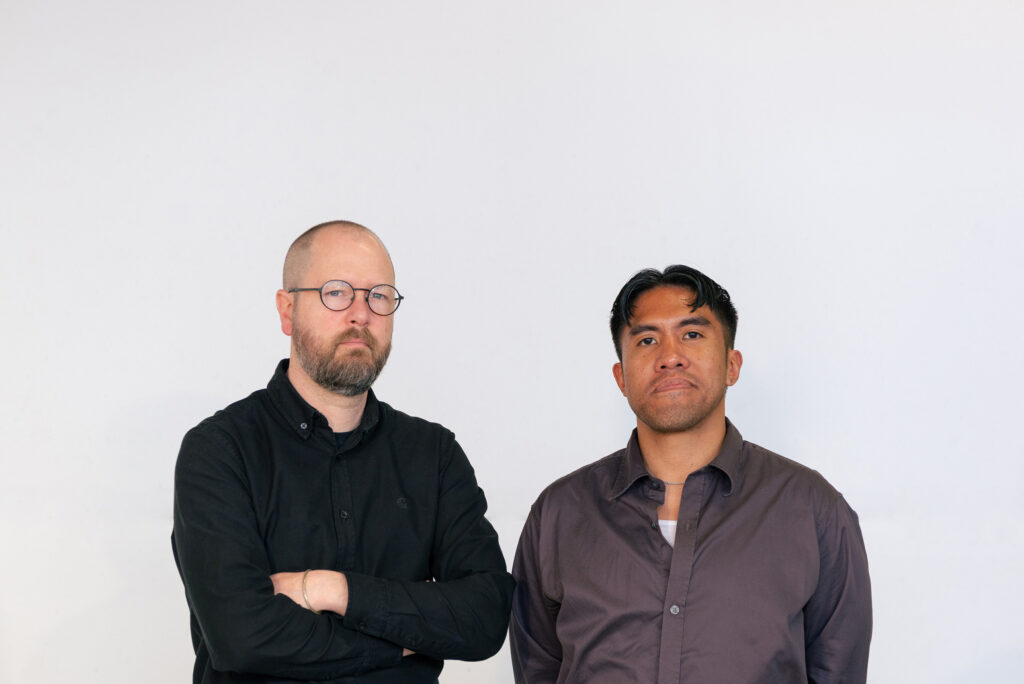
$1.4 Million NSF Grant Funds Smart Mobility Solutions for Benton Harbor
NSF grant facilitates community partnerships working toward innovative transportation solutions.
New information and sensing technologies have opened up innovative ways of interacting with our natural and built environments. With a new, four-year $1.4 million grant from the National Science Foundation (NSF), researchers at the University of Michigan and community partners will apply these technologies to explore new mobility solutions in Benton Harbor, Michigan.
Located west of Kalamazoo on the shores of Lake Michigan, Benton Harbor faces a host of challenges. Today, 50 percent of city residents live below the poverty level, 24 percent are unemployed and many lack access to personal vehicles. The community relies on public transportation operated by the Twin Cities Area Transportation Authority (TCATA) since the majority of jobs are located outside Benton Harbor.
However, the current transportation services struggle to meet the needs of the Benton Harbor community. Alex Little, the executive director of TCATA, which operates two fixed bus routes and a flexible Dial-a-Ride service, knew there must be more they could do.
Looking for innovative solutions, he partnered with a research team at the University of Michigan led by Principal Investigator Jerome Lynch, Professor of Civil and Environmental Engineering and Donald Malloure Department Chair. The team also includes U-M Co-Principal Investigators Robert Goodspeed (Assistant Professor of Urban and Regional Planning) and Tierra Bills (Assistant Professor of Civil and Environmental Engineering and Michigan Society Fellow), as well as Co-Principal Investigator Pascal Van Hentenryck, formerly of the University of Michigan and now at the Georgia Institute of Technology. The University of Michigan’s involvement is part of a larger portfolio of projects involving collaborations between interdisciplinary faculty and community stakeholders called the Urban Collaboratory.
“Benton Harbor is grateful to have the University of Michigan Urban Collaboratory working with us on transportation and other issues,” said Little. “We already see progress and are encouraged by their involvement and willingness to help.”

Assistant Professor Tierra Bills confers with a Benton Harbor resident at a workshop.
Marcus Muhammad, Mayor of the City of Benton Harbor, also expressed his excitement about the project.
“The work to be completed under this grant will be wonderful for our transit system and our citizens,” said Muhammad. “The proceeds of this grant are bringing to bear the knowledge and expertise of some of the best minds in the University on some of the City’s issues. With the continuing support of the City Commission, the various research activities that will be performed will benefit us for years to come.”
The U-M team is also working with the Southwest Michigan Planning Commission, Kinexus (a Benton Harbor nonprofit focused on workforce, community and business development), and Lake Michigan College, to ensure new mobility solutions enhance the connectivity of the transit system with evolving workforce opportunities. The U-M team developed a project to deploy sensing technologies in Benton Harbor that will allow them to better understand resident’s mobility preferences and mobility service performance. New approaches of using GPS tracking using cell phone apps and computer vision on city buses will be used to collect novel mobility data. Surveys of residents will augment these data sources. Initial information-gathering workshops have already taken place, hosted by local collaborator Kinexus.
“The solution is in understanding the city’s travel needs in comparison to the spatial coverage provided by current transportation services and how we can engineer improvements to this public transportation system, in order to directly affect employment outcomes,” said Bills.
The project will draw on the rich data collected to create an analytical framework that can predict both resident demand for mobility services and the performance of these services given changes in user demand.
“We want to use information technologies to propose creative ways to solve mobility problems,” said Goodspeed. “But we’ll do this through a collaborative community-based process, where key stakeholders will provide their ideas, insights, and knowledge to shape the solutions that will help people get to jobs, schools, and improve their quality of life.”
The team will create a community-based decision making framework based on these models, which will give community members the tools to explore different mobility solutions and see the predicted outcomes. TCATA will iteratively implement mobility solutions and assess the success of each solution.
This award is part of NSF’s Smart & Connected Communities program, which supports integrative research projects that pair advances in technological and social dimensions with meaningful community engagement. A “smart and connected community” is a community that integrates intelligent technologies with the natural and built environments.
“The Smart & Connected Communities program continues to generate innovative and collaborative research applications that are addressing challenges faced by our local communities and cities and are offering solutions to help improve people’s lives,” said Jim Kurose, Assistant Director for Computer and Information Science and Engineering.
Author: Jessica Petras, U-M Civil and Environmental Engineering. View the original story here.









